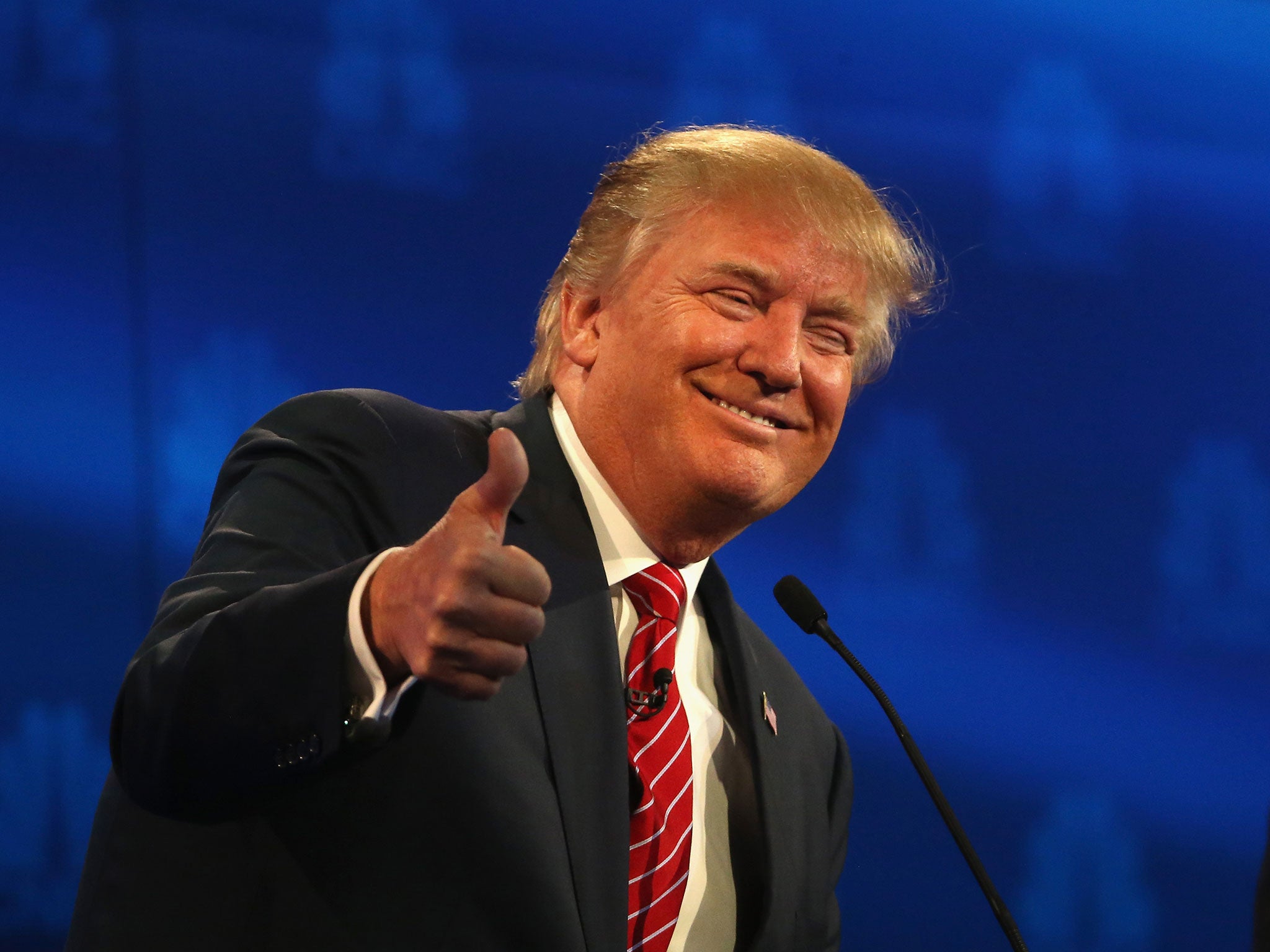Donald Trump 'could make America the North Korea of economics’
'Once you've ripped up this deal, what happens to the next one? Yeah, Donald Trump might get a good deal one time, but the next president is screwed'

In his run for the White House, Donald Trump has threatened to slap tariffs on imports from China, in almost-certain violation of international rules. He has threatened to confiscate money that immigrants from Mexico wire home to their families, in order to force the Mexican government to pay for a border wall. This week, he suggested that, in an economic crisis, the government might repay only some of the money it owes to certain holders of its debt.
Those threats reflect an economic philosophy that is at odds with the traditional economic belief that markets cannot function well outside the rule of law. America has built 200 years of prosperity on a foundation of people agreeing to rules in business transactions, and then sticking to them. Trump appears willing to break those rules in the name of cutting better "deals" for American workers.
Trump's pledge to take extraordinary steps to help left-behind American workers has powered his campaign and made him the presumptive Republican nominee. But he has worried many economists, on the right and the left, who warn that breaking laws and commitments could undermine America's credibility with trading partners, raise its borrowing costs and potentially spark global financial panic.
"Once you've ripped up this deal, what happens to the next one? Yeah, Donald Trump might get a good deal one time, but the next president is screwed," said Douglas Holtz-Eakin, a former director of the Congressional Budget Office who now heads the conservative American Action Forum think tank. "It is the worst thing on the global stage to be viewed as an unreliable partner. You don't want to be the North Korea of economics."
The debt issue, which Trump raised repeatedly, but hazily, this week, especially troubles economists. Trump suggested in interviews Thursday that he would be open to a form of renegotiating the bonds issued by the government to fund deficit spending. Bondholders expect to be paid the value promised by the bond they purchased; Trump seemed to indicate that he might attempt to compel bondholders to accept a lower value.
The mere suggestion that holders of U.S. Treasurys might not be paid in full -- a practice sometimes referred to as "haircutting" for bondholders -- would be "insane" for Trump to make as president, said Austan Goolsbee, a University of Chicago economist who once chaired President Obama's Council of Economic Advisers.
"It would lead to a financial crisis larger than 2008 if they went and haircutted U.S. Treasurys, which is supposed to be the safest asset in the world," Goolsbee said. "We should give that zero thought. Clearly Donald Trump gave it zero thought, and we should give it exactly that."
Economists generally believe that market systems thrive within set legal frameworks. If one person agrees to buy a pizza from a second person at a set price, the buyer needs assurances that the pizza will arrive. If it doesn't, and the seller takes her money anyway, the buyer needs to be able to do something to get her money back. The legal system provides those assurances.
Several economists said Trump sees markets differently, more in line with his career in commercial real estate. (The parallel was expertly laid out by Adam Davidson in the New York Times Magazine earlier this year.) In that view, transactions are "deals," typically with a winner on one side and a loser on the other. Trump's own real estate career suggests the rules that govern those deals are often negotiable; lending terms can be renegotiated when a borrower is close to default, for example.
Nations, though, are not real estate moguls. Countries that default or come close to defaulting on their debt, such as Greece, are punished by lenders with much higher borrowing costs for future loans. Countries that agree to the World Trade Organisation's rules for trade, and then break them, can be penalised harshly. Such would very likely be the case if the United States levies the sort of tariffs Trump has threatened.
Perhaps most importantly, at a time when companies are increasingly able to spread their cash around the world, the rule of law is one of America's great remaining advantages over rivals such as China and Russia.
"The consensus of modern growth economics is that property rights, rule of law, good institutions are more important than you might even think to keeping growth going," said John Cochrane, an economist at the free-market Hoover Institution think tank at Stanford University. "The difference between the United States and a lot of much poorer countries comes down to things like, can you do a zoning change without bribing the guy?"
Legal limitations give companies faith that they can invest and create jobs in America, Cochrane said. Holtz-Eakin said that, after the fall of communism in Europe a quarter-century ago, the countries that installed credible laws and government institutions were the ones that attracted the most investment and growth. He worried that Trump's threats could destroy such credibility -- and backfire on Trump's presidency.
"Not to be too pointed about it, but Canada's not too far away" as an investment destination, Holtz-Eakin said. Capital could flee quickly, and a President Trump "could be responsible for more lost jobs than anyone."
Join our commenting forum
Join thought-provoking conversations, follow other Independent readers and see their replies
Comments